This article is an excerpt from the 2017 Journey of Hope magazine. If you like this story, you can order or download the entire magazine for free and read more stories from people half-way across the world who choose to rise above barriers like poverty, lack of access to education, and societal expectations that would keep them down.
A Woman’s Place
There is a saying in Afghanistan, “Women should stay home or in the grave.”
This sentiment is a remnant of the Taliban-era, when women could be whipped in public for baring their ankles, lose a finger for painting their nails, or be thrown down a flight of stairs for hosting an informal school in their homes.
Although the Taliban regime was officially toppled in 2001, attitudes about a woman’s place in Afghan society remain controversial. More conservative communities are enclaves for the old way of thinking. Jalalabad, in Afghanistan’s eastern province of Nangarhar, is one of those places.
Home to more than 350,000 people in 2015, the city’s population has tripled since 2006 and continues to grow as refugees from Pakistan return and displaced families flee surrounding villages. The influx of people has strained infrastructure, poverty is rampant, and women’s rights are under siege.
On the front line of this battle for equality, is Kamp-e Farm Hada Girls’ High School. Its teachers and students fervently oppose the old ideology, and are actively working to replace the bigoted philosophy with a more egalitarian way of thinking.
At the forefront of this struggle is their fearless leader, Parween Dedarn.
Leading the Charge
The only female headmaster and teacher at the school, Parween is a visible symbol of the changing times. As a symbol and role model, she knows she has to swing big if she wants to make an impact.
“If I could have one wish, it would be to educate the coming generation,” says Parween. “I hope to see my students take a positive part in rebuilding our destroyed Afghanistan.”
At 51 years of age, Parween has seen regimes rise and fall, her country torn apart by war, and an entire generation of hopeful men and women have their dreams of education ripped from their hands.
Parween’s own road is no easier than her country’s. She has risen above countless obstacles to serve her community and get where she is today. Married at age 15, instead of staying home she finished school and graduate from college. For nearly two decades she has sacrificed her salary to get to and from school every day. Her meagre earnings going toward gas or taxifare to travel the 35 mins from her home to the school. She has also weathered constant threats and harassment from ignorant naysayers. Despite, and perhaps because of all this, Parween is more determined than ever to turn her country around. If Afghanistan hopes to save another generation from the fate of their parents, she says they must act now.
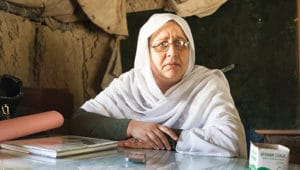
Our Time Is Now
Even though the Taliban were ousted from power 16 years ago, women considering careers still fear retribution from their conservative families and neighbors. A visible career, like that of a teacher, is a risky gamble for any young woman.
“The other women are afraid,” Parween says about other ladies who have flirted with the idea of becoming teachers at her school. “The society is not supportive, peoples are harassing the girls.”
The “girls” she mentions aren’t just potential teachers. Students are not immune to these attacks. Threats are shouted at girls as they walk to school. Other times, more than words are thrown.
“One day some stupid guys shoot a girl inside the school with a bird hunting gun,” Parween recalls. The girl sustained only minor injuries and recovered quickly but the message was clear, girls shouldn’t be in school.
“It’s really hard, this dangerous situation, because of culture and security and many other barriers in front of us…but beside of all these hardships we want to be educated and become something in our future.”
To finish Parween’s story and read more about the lives of students, teachers, and others who are risking it all to rise up, please download a free copy of Journey of Hope and continue reading on page 28.
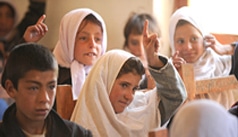
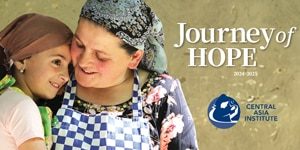

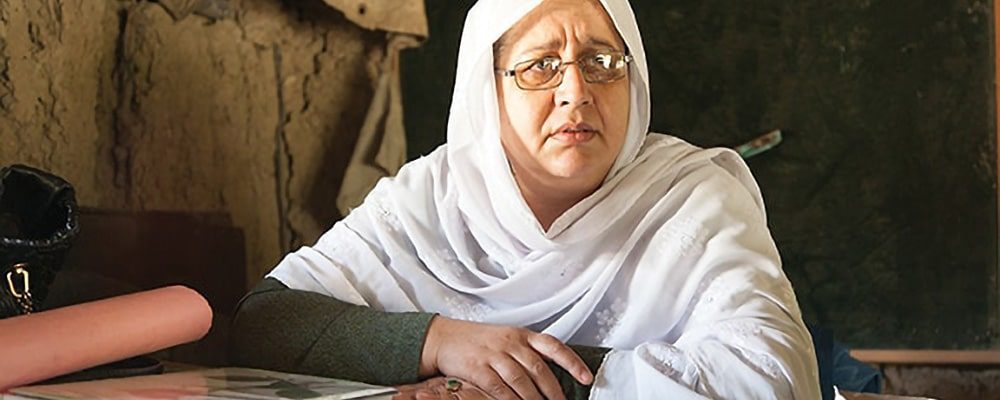

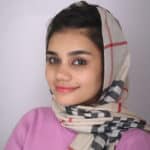
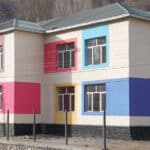
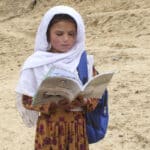
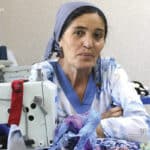



2 responses to “A Woman’s Place”
Keep up the great work, Parween !!!
Girls rule & Taliban drool. Lol
Anas ibn Malik reported: The Messenger of Allah, peace and blessings be upon him, said:
طَلَبُ الْعِلْمِ فَرِيضَةٌ عَلَى كُلِّ مُسْلِمٍ
Source: Sunan Ibn Majah 224, Grade: Hasan
Seeking knowledge is an obligation upon every Muslim.
The notion that women should not learn, is a tribal innovation that has no foundation in Islam.
There is a suppressed history of many female scholars who made significant contribution to to Muslim world. The fist one Being Aisha (RA).
It is an empirical proof that educated women add to the social well being of the whole community.